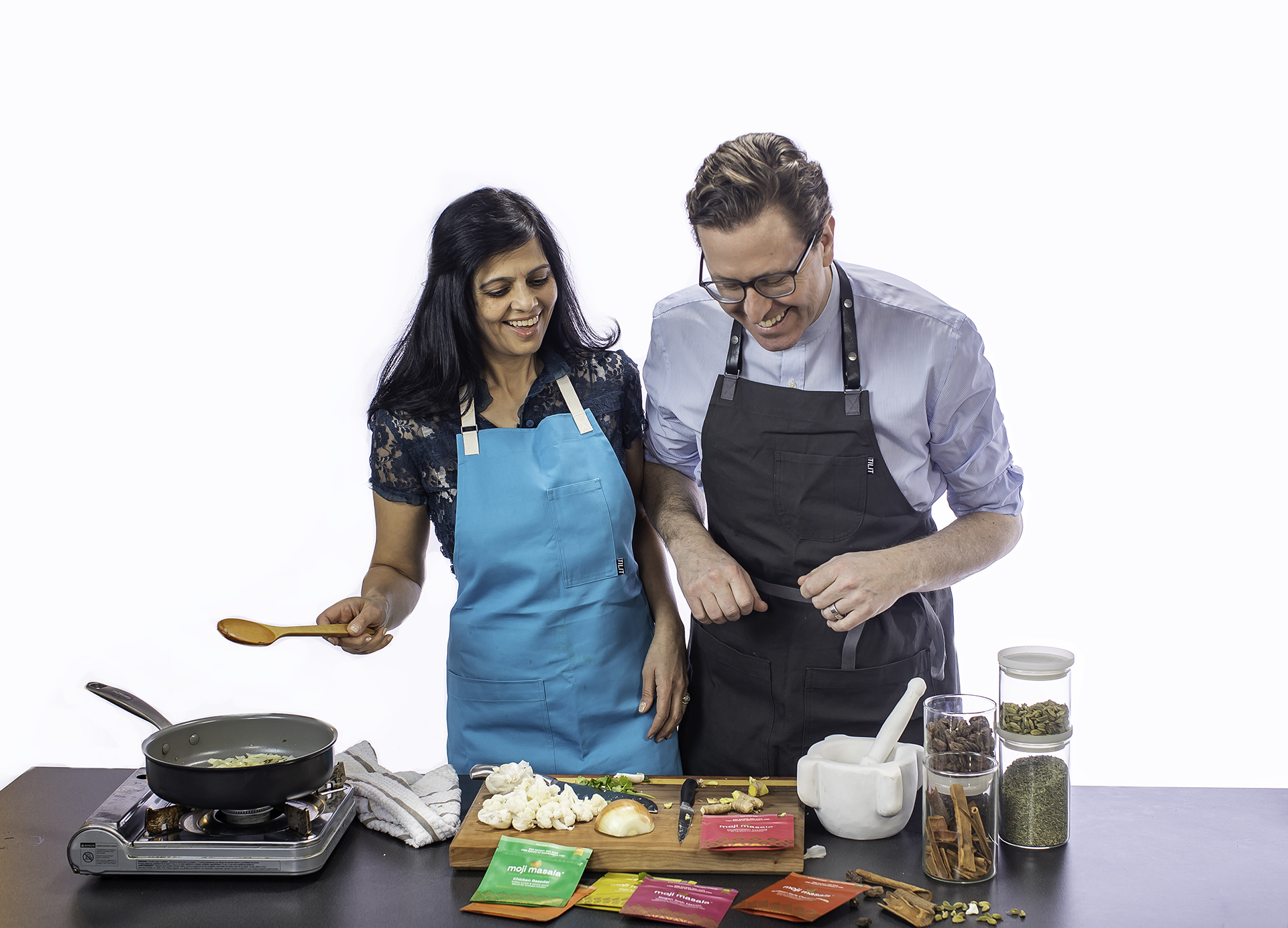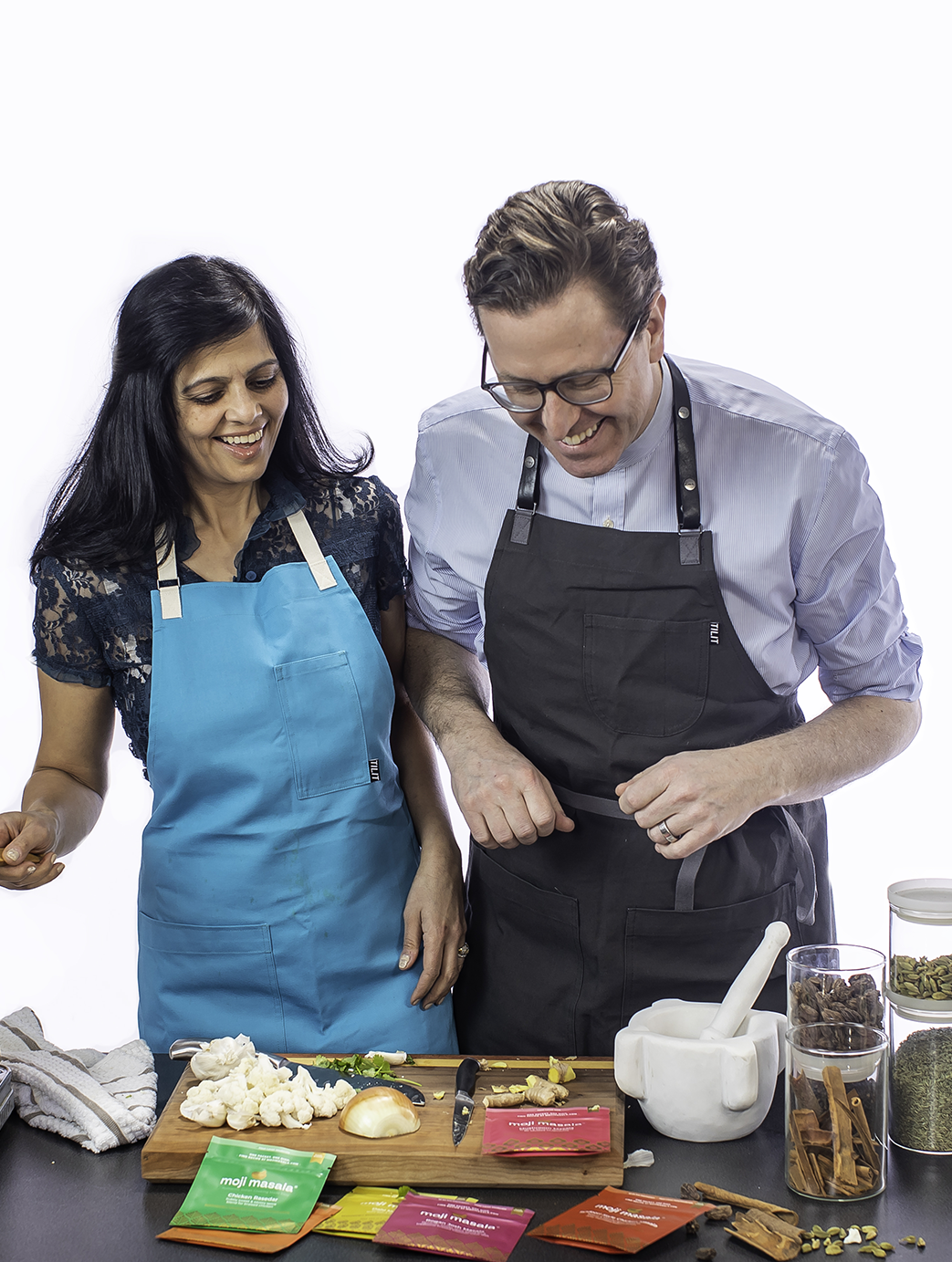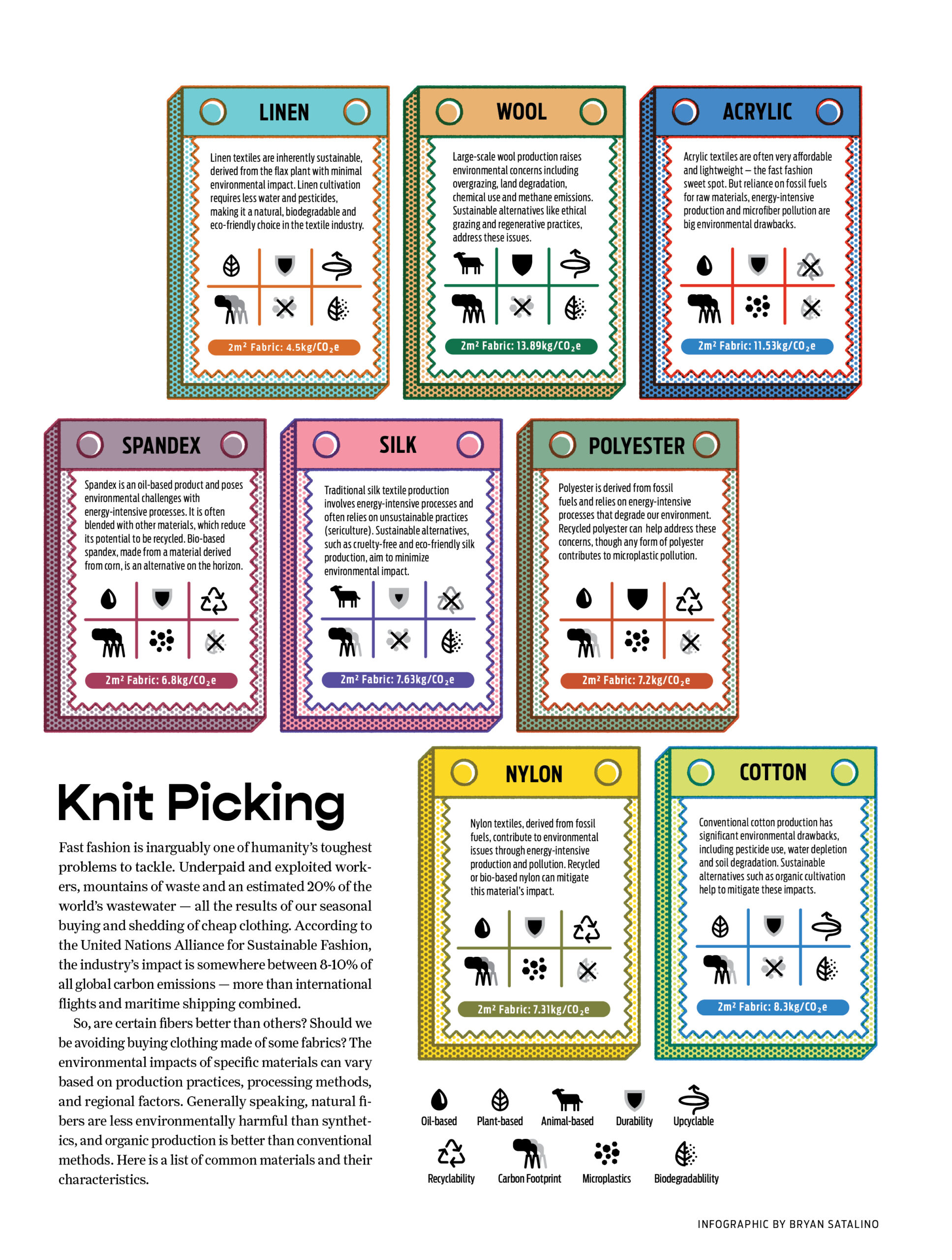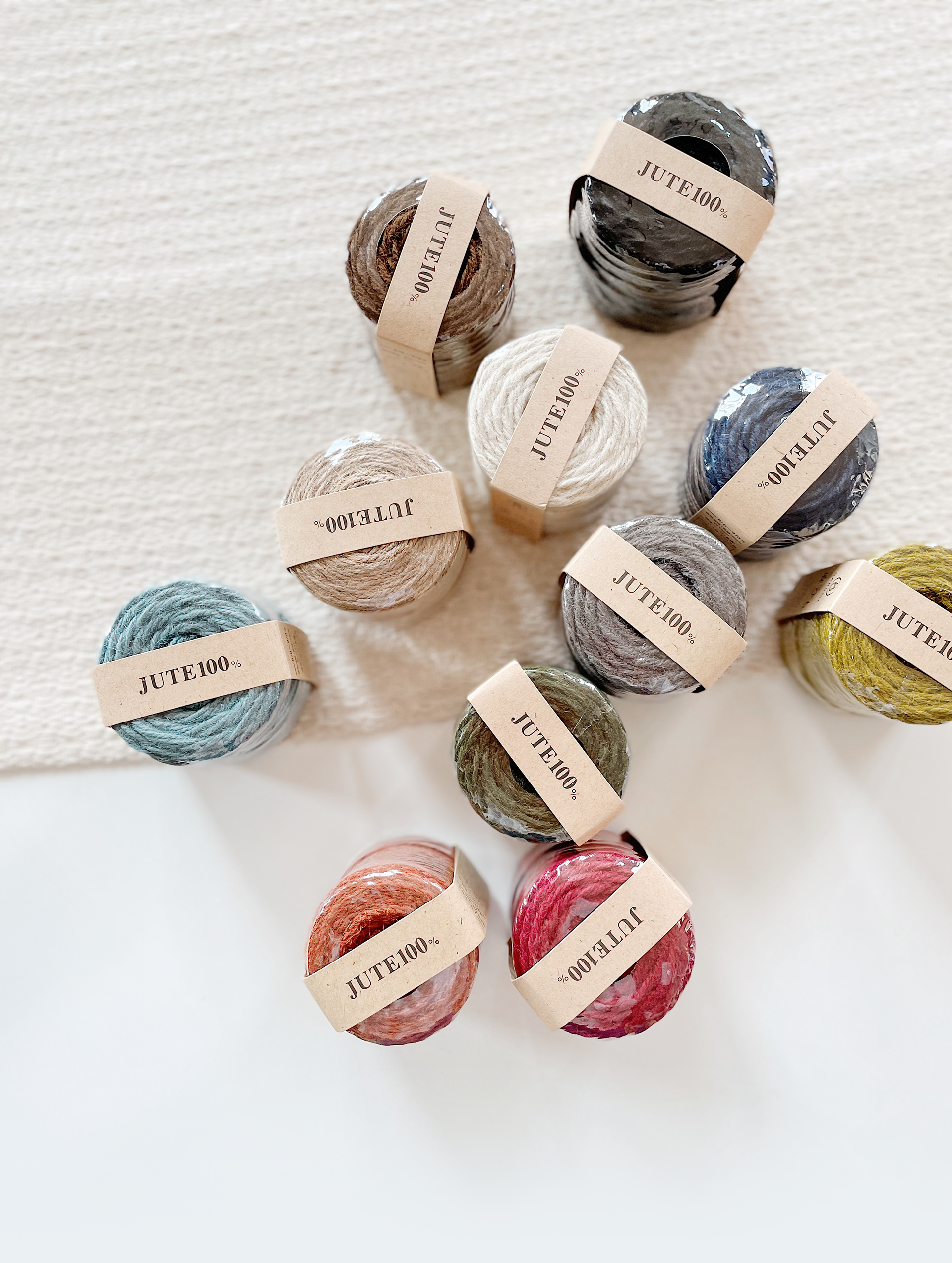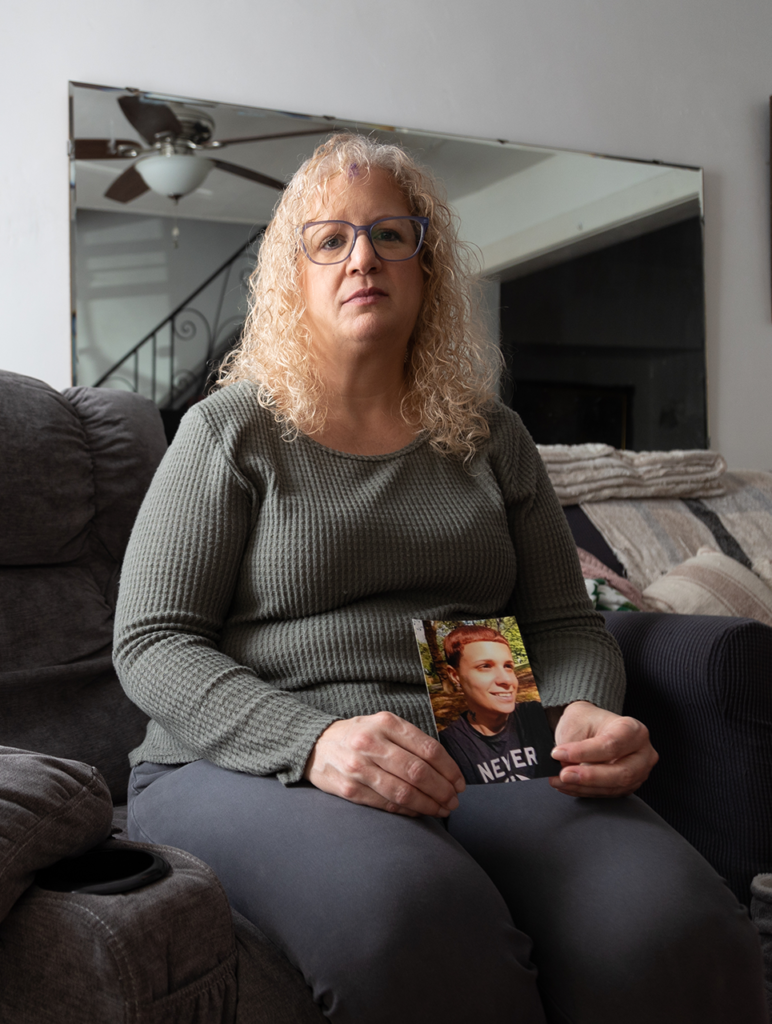Over the course of a decade, Shireen Qadri learned the intricacies of Indian cooking from her mom, Safia. But when she started a family, she found that preparing the cuisine was too elaborate for everyday meals. Her mom had a solution: when Qadri and her husband, J.D. Walsh, visited Safia in Maryland, she would send the couple home with blended spice packets that made preparing traditional dishes much easier.
“We kind of had that ‘Aha!’ moment,” says Walsh, “where we were finding time to make the food we loved, even with a young family and not a lot of time.”And thus, in 2018, the concept behind moji masala (moji means “mom” and masala means “blend of spices” in Kashmiri), was born. The line of organic, hand ground spice blends equips home cooks to whip up dishes like tandoori chicken, kitchari, aloo rasedar, and more.
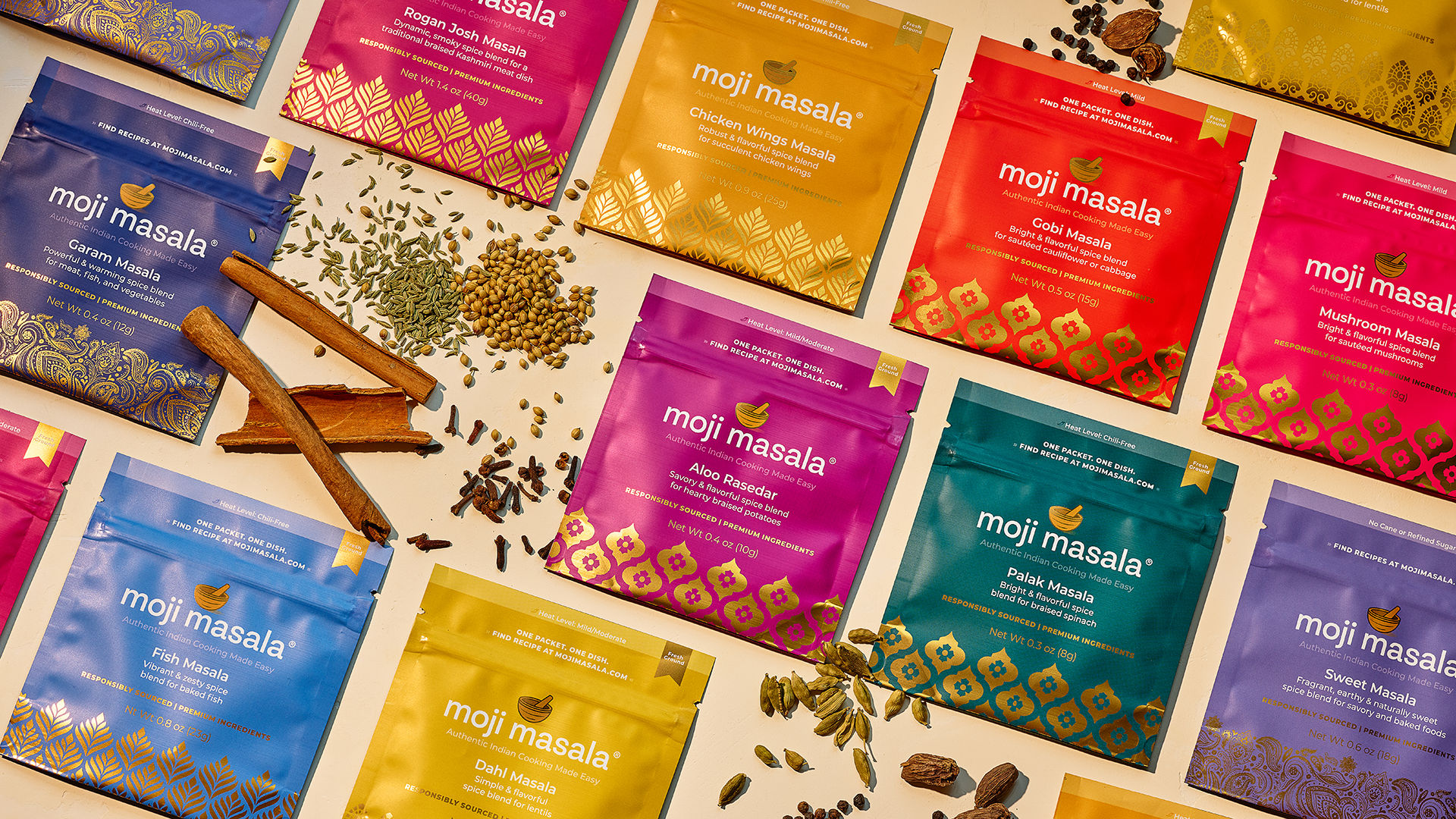
Getting the flavor profiles right was an arduous process that required a full year of testing — partially because the batch sizes needed to be pared down. Safia typically cooks large quantities, but Qadri wanted to make packets of spices for three to five servings. And like so many legendary home chefs, Safia just eyeballs the measurements. “She doesn’t own a measuring spoon,” says Qadri.
The couple has taken Safia’s efforts to simplify cooking a step further, providing a shopping list for the meal on each spice packet and QR codes for instructional videos.
“The whole plan was to make this as foolproof and easy as possible,” says Walsh.
The spices are hand ground at the Culinary Collective, a kitchen shared by food trucks and ghost kitchens in Bridesberg.
A homemade Indian dish is all about the layers of flavor.”
— Shireen Qadri
One of moji masala’s selling points is that their spices are organic, which is not the case for the majority of Indian spices available at supermarkets. And their blends don’t contain excessive salt unlike many of the bagged and jarred “simmer sauces” they see as their competition.
Qadri and Walsh use wholesome ingredients to build an intensity of flavor that measures up to traditional, home-cooked meals. Qadri will use a strong flavor like black cardamom more boldly than even an Indian restaurant, she says, which might present the familiar flavors of Indian cuisine like cumin, turmeric, garlic and ginger — and then make them extra spicy to mask the lack of nuance in the dishes.
“That isn’t what a homemade dish experience is like,” says Qadri. “A homemade Indian dish is all about the layers of flavor.”
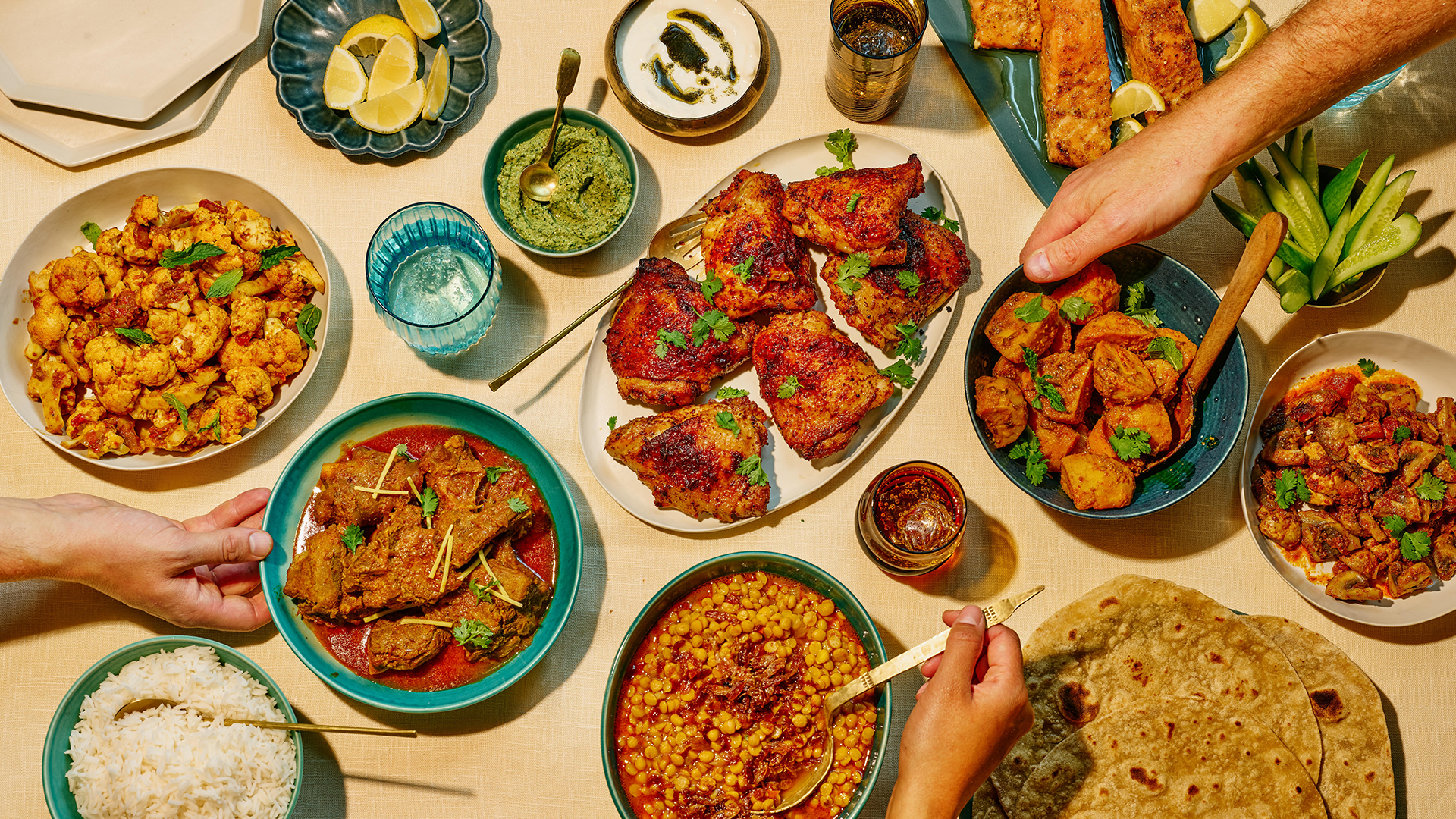
The co-founders are the sole employees, handling all aspects of the business. Walsh says, “If you go on our website, there’s a chat box. It’s Shireen or I who are going to answer.”
The two have a globetrotting past. Qadri worked in finance, and Walsh, a standout basketball player for the University of Maryland, launched J.D. Walsh Basketball School, which has led to basketball camps in India, China and Israel that aim to promote world peace and diplomacy through sports. The two moved from New York City to Chestnut Hill during the pandemic, largely to provide a change of scenery for their young daughter. It has proven to be a perfect place to launch moji masala, as they have witnessed firsthand how committed the community is to supporting local businesses. And nowhere is that more evident than Weavers Way Coop, where they shop every day.
“There’s not even a little bodega in New York City that will support you the way Weavers Way does. They genuinely care about our local brand being part of their community. I feel like they’re a partner,” says Qadri.
A key part of the marketing of moji masala is offering samples at places like Weavers Way because once people try it, the couple says they are hooked. It’s also an opportunity to learn their potential customers’ preferences. Qadri and Walsh meet with people who have dietary restrictions due to illness or self-imposed diets to promote health. They talk about how hard it can be to take care of a family and still have time to take care of themselves.
“Food is a problem for people,” says Qadri. “As we get a little older and a little busier and we value the importance of eating well, it just makes everything so much harder. So we’re trying to solve a problem with homemade Indian food.”
